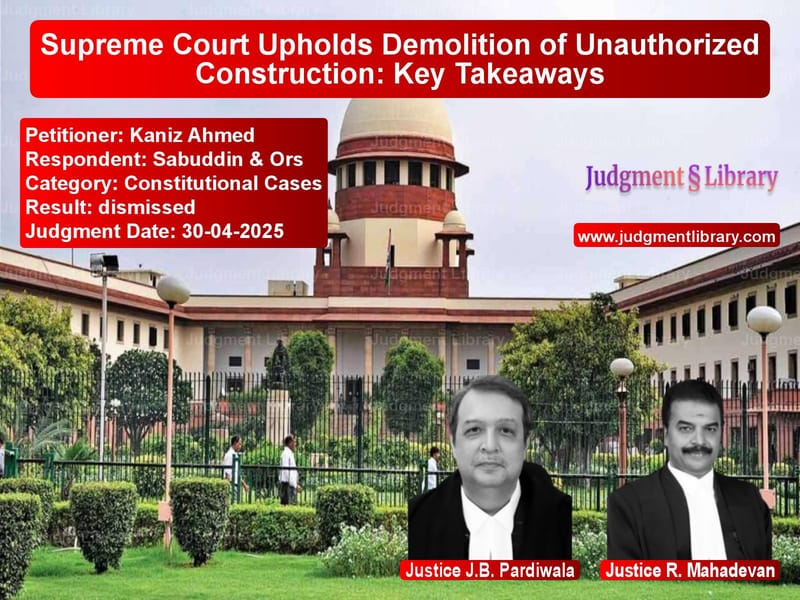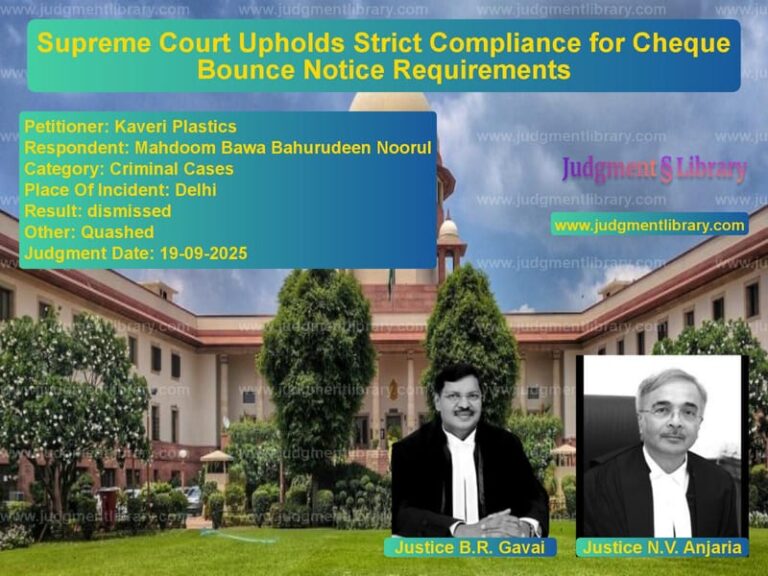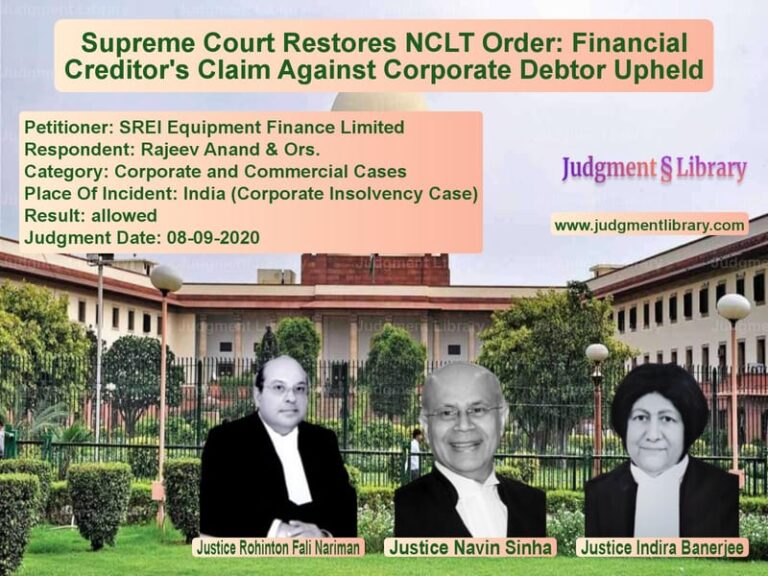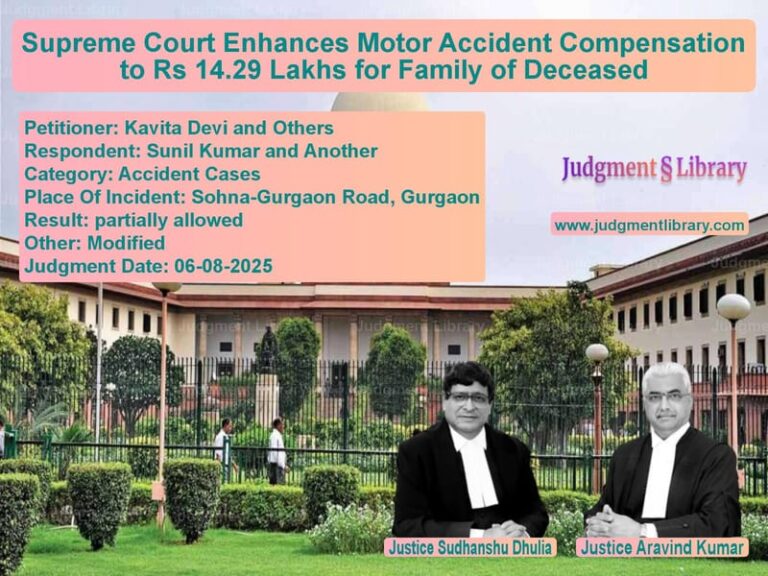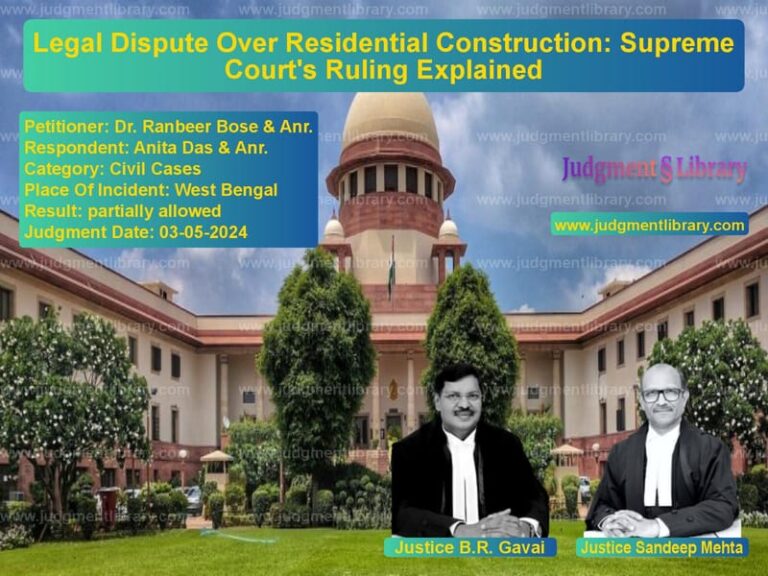Supreme Court Upholds Demolition of Unauthorized Construction: Key Takeaways
The Supreme Court of India recently delivered a landmark judgment in the case of Kaniz Ahmed vs Sabuddin & Ors, reinforcing the judiciary’s strict stance against unauthorized constructions. The case revolved around a petition seeking special leave to appeal against a High Court order directing the demolition of illegally constructed floors in a building. The Supreme Court dismissed the petition, upholding the High Court’s decision and emphasizing the importance of adhering to building regulations.
The High Court, in its impugned judgment, had issued clear directions to the police and municipal authorities to ensure the eviction of occupants from the unauthorized floors and the subsequent demolition of the structure. The court had also mandated videography of the entire process and instructed the authorities to inspect neighboring properties for similar violations. The Supreme Court, in its order, expressed complete agreement with these observations and commended the High Court for its proactive approach in addressing the issue of unauthorized constructions.
The judgment cited a previous ruling, Rajendra Kumar Bariatya and Another v. U.P. Avas Evam Vikas Parishad and Others, where the court had laid down detailed guidelines to prevent unauthorized constructions. These guidelines included obtaining undertakings from builders, displaying approved plans at construction sites, and ensuring service connections only after obtaining completion certificates. The court reiterated that any deviation from these rules must be dealt with strictly, and no leniency should be shown to violators.
One of the key arguments presented by the petitioner’s counsel was the request for regularization of the unauthorized construction. However, the Supreme Court firmly rejected this plea, stating that a person who disregards the law cannot seek judicial sympathy. The court observed, ‘A person who has no regards for the law cannot be permitted to pray for regularization after putting up unauthorized construction of two floors. This has something to do with the rule of law. Unauthorized construction has to be demolished. There is no way out.’
The judgment also highlighted the broader implications of unauthorized constructions on public safety and urban planning. The court noted that such violations often lead to a culture of impunity, undermining the deterrent effect of laws. It emphasized the need for strict enforcement of building regulations to maintain order and ensure the well-being of society.
In conclusion, the Supreme Court’s judgment serves as a stern reminder of the consequences of flouting building laws. It underscores the judiciary’s commitment to upholding the rule of law and sets a precedent for future cases involving unauthorized constructions. The dismissal of the petition reaffirms the principle that no one is above the law, and violations will be met with stringent action.
Petitioner Name: Kaniz Ahmed.Respondent Name: Sabuddin & Ors.Judgment By: Justice J.B. Pardiwala, Justice R. Mahadevan.Judgment Date: 30-04-2025.Result: dismissed.
Don’t miss out on the full details! Download the complete judgment in PDF format below and gain valuable insights instantly!
Download Judgment: kaniz-ahmed-vs-sabuddin-&-ors-supreme-court-of-india-judgment-dated-30-04-2025.pdf
Directly Download Judgment: Directly download this Judgment
See all petitions in Public Interest Litigation
See all petitions in Property Disputes
See all petitions in Fundamental Rights
See all petitions in Constitution Interpretation
See all petitions in Judgment by J.B. Pardiwala
See all petitions in Judgment by R. Mahadevan
See all petitions in dismissed
See all petitions in supreme court of India judgments April 2025
See all petitions in 2025 judgments
See all posts in Constitutional Cases Category
See all allowed petitions in Constitutional Cases Category
See all Dismissed petitions in Constitutional Cases Category
See all partially allowed petitions in Constitutional Cases Category

